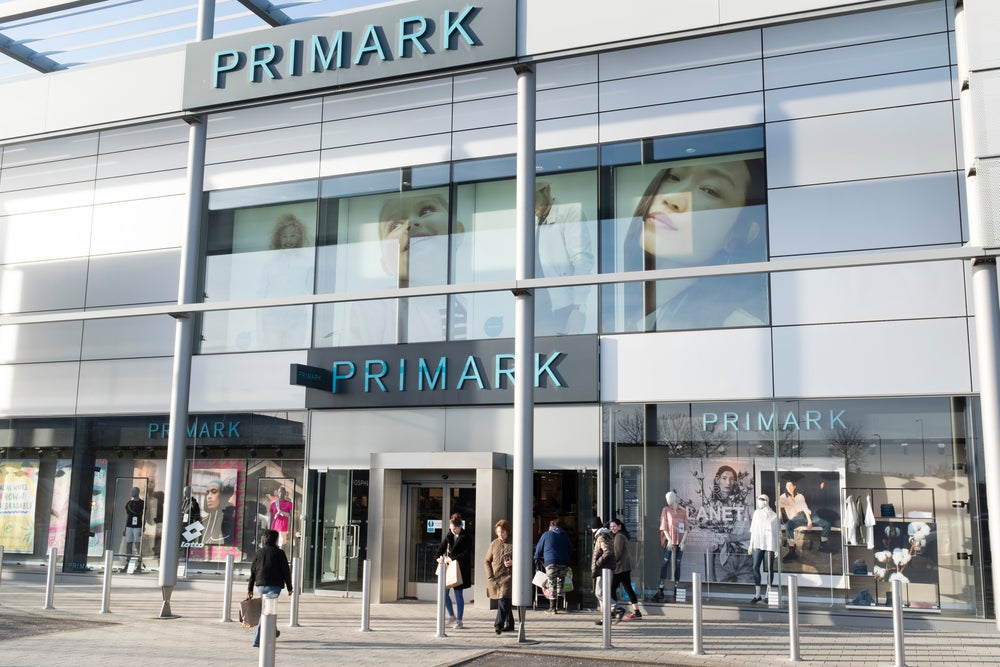
Primark’s owner Associated British Foods (ABF) made the announcement ahead of the close period for the company’s annual financial results.
ABF said Primark demonstrated strong resilience in its UK operations, in a preliminary trading update before unveiling its annual results.
For the year Primark sales are expected to increase 11% in the UK and 18% across Europe. On a like for like basis, sales are forecast to rise 9% for the retail arm comprising 11% in the UK and 8% across Europe.
ABF said the growth in sales has come from “limited and carefully selected price increases” to counteract the increase of input cost inflation aided by a strong performance from new stores opened this year and demand for its products.
Key points from Primark’s expected results for Q4:
- Sales for the retail arm are expected to be around £9.0bn, 15% ahead of sales last year with like-for-like sales growth of 8%
- Sales in the UK expected to be up 8% or 7% on a like-for-like basis.
- Europe sales expected to come in at 18% higher or 9% on a like for like basis.
- US sales are expected to be 45% higher driven by new store openings.
Second half adjusted operating profit margin is expected to be slightly below 8% and for the full financial year to be around 8%. This is primarily due to an unexpected increase in stock loss from stores and a “modest” amount of restructuring costs in Germany.
Despite this Primark has continued to expand its store openings with one in France, Spain, Poland and Romania, and expects to be trading from 432 stores at the end of the fiscal year, spanning 18.2 million square feet of retail space
ABF said in the upcoming 2023/24 financial year Primark anticipates a “substantial recovery in gross margin” driven by reduced materials costs, the weakening of the US dollar against the British pound and the euro, as well as lower freight costs.
Primark announced in April that it would be expanding its early Click & Collect trial to an additional 32 stores in London, as part of its ongoing digital development programme, bringing the total to 57 in the UK. Starting tomorrow (13 September), the service will also include women’s clothing.
ABF, Primark’s parent company, is scheduled to present its full-year results on 7 November 2023.
Analyst reaction
Commenting on the announcement, Louise Deglise-Favre, apparel analyst at GlobalData points out store expansion seems to be driving most of Primark’s growth and warns “adoption of digital retail is vital for its future growth as L-F-L store sales remain soft.”
“Primark invested heavily in its digital operations in FY2022/23, after growth in the online channel caused it to sink further than others throughout the pandemic and hindered the speed of its recovery. The retailer has completed the rollout of its new website to all markets, which remains non-transactional, but showcases an expanded range of products and enables shoppers to check store availability. Primark is also expanding its UK click and collect trial, currently in 57 stores, to include selected womenswear products as well as the childrenswear and nursery items it launched with. This will take Primark’s digital capabilities to a higher level, given the popularity of its womenswear, testing the robustness of its logistics before further extensions.”
“The retailer performed best in its home market, the UK, with L-F-L sales rising 11%. In continental Europe, L-F-L sales grew 8%, which is a concern considering they were 18% down on pre-pandemic levels last year. Primark needs to continue boosting its consumer awareness in the region to steal market share from dominating local players, such as Kiabi in France and Pepco in Eastern Europe. Primark did not disclose L-F-L performance in the US, indicating the region might be facing difficulties growing sales organically due to the competition from strong value players such as Shein and Walmart.”



